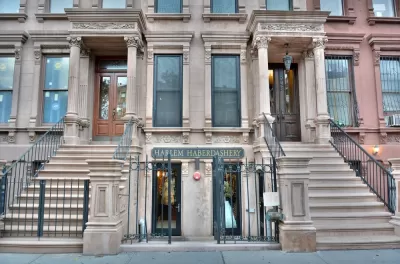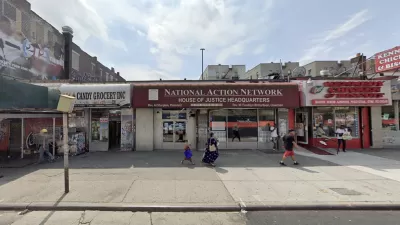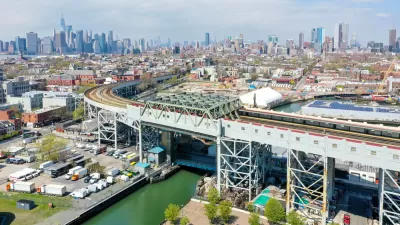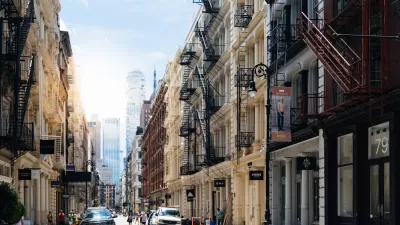Artists and community members seek to preserve the culture and identity of Harlem amid the growing popularity and expense of housing in their community and all over New York.

New York is growing and, according to an article about Harlem by Hilary Saunders in Next City, "Real estate prices are rising, as they are in all five NYC boroughs." This may be great news for property owners planning to sell, but it can pose challenges for those looking to preserve the history of some of America's most iconic neighborhoods.
Harlem was home to so many great American artists and many in the community want to make sure the neighborhood that nurtured them doesn't get bulldozed in a rush to put up Whole Foods and brunch spots. One home in particular that Harlem residents are fighting to keep is "the three-story brownstone where (Harlem) Renaissance poet Langston Hughes once made his home." The I, Too, Arts Collective (named for one of Hughes' poems) is raising funds to make the house, which has been empty for decades, into an arts space. They envision it as a site to host open mics, readings and other arts events.
Saunders spoke with one Harlem resident, author Renée Watson who described her hopes for the space this way: "I think the benefit of a space like this is that it strengthens the community and also makes art a living thing, something that is tangible, art that is grounded in the past while very much speaking to present issues."
FULL STORY: In Harlem, Artists Want to Rewrite Gentrification

Alabama: Trump Terminates Settlements for Black Communities Harmed By Raw Sewage
Trump deemed the landmark civil rights agreement “illegal DEI and environmental justice policy.”

Planetizen Federal Action Tracker
A weekly monitor of how Trump’s orders and actions are impacting planners and planning in America.

The 120 Year Old Tiny Home Villages That Sheltered San Francisco’s Earthquake Refugees
More than a century ago, San Francisco mobilized to house thousands of residents displaced by the 1906 earthquake. Could their strategy offer a model for the present?

In Both Crashes and Crime, Public Transportation is Far Safer than Driving
Contrary to popular assumptions, public transportation has far lower crash and crime rates than automobile travel. For safer communities, improve and encourage transit travel.

Report: Zoning Reforms Should Complement Nashville’s Ambitious Transit Plan
Without reform, restrictive zoning codes will limit the impact of the city’s planned transit expansion and could exclude some of the residents who depend on transit the most.

Judge Orders Release of Frozen IRA, IIJA Funding
The decision is a victory for environmental groups who charged that freezing funds for critical infrastructure and disaster response programs caused “real and irreparable harm” to communities.
Urban Design for Planners 1: Software Tools
This six-course series explores essential urban design concepts using open source software and equips planners with the tools they need to participate fully in the urban design process.
Planning for Universal Design
Learn the tools for implementing Universal Design in planning regulations.
Clanton & Associates, Inc.
Jessamine County Fiscal Court
Institute for Housing and Urban Development Studies (IHS)
City of Grandview
Harvard GSD Executive Education
Toledo-Lucas County Plan Commissions
Salt Lake City
NYU Wagner Graduate School of Public Service





























